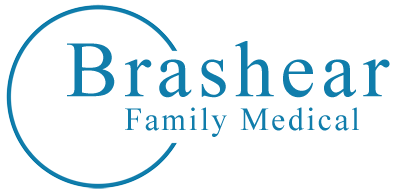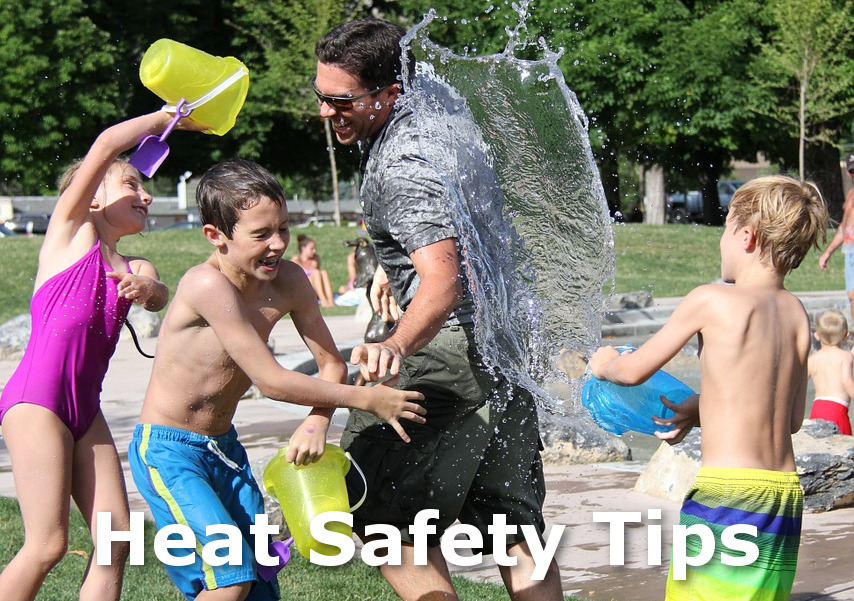Most summers see heat waves in one or more parts of Texas. Heat is one of the leading weather-related killers here, resulting in hundreds of fatalities each year and even more heat-related illnesses. This is why Brashear Family Medical has compiled a list of heat safety tips to ensure you and your loved ones stay safe this summer in the hot Texas sun.
Brashear Family Medical Heat Safety Tip #1: Stay Cool at Home
It is important to check your air conditioning system at home to make sure it is working properly. You can also keep cool air in and hot air out by installing weatherstripping on your doors and windowsills as a part of your summer home maintenance. Additionally, windows should be covered using drapes, shades, awnings or louvers for any windows in your home that receive morning or afternoon sun to reduce heat entering into your home.
Ceiling fans should run counter-clockwise to force room air down and make you feel cooler. Water from a spray bottle can assist with cooling you down dramatically — as it evaporates off your skin, your body sheds heat.
Use small appliances. Slow cookers and tabletop grills are ideal over traditional ovens and stovetops to minimize heat.
Brashear Family Medical Heat Safety Tip #2: Eating, Drinking and Scheduling Exercise
Drink plenty of water and other fluids to keep your body hydrated. Don’t wait to re-hydrate until you are thirsty. Adults should drink eight 8-ounce glasses of water or more each day.
Alcohol, caffeine and carbonated drinks should be avoided while in the summer heat. These beverages can lead to dehydration and increase the effects of heat illness. You should also make sure to eat meals that are well-balanced and light. High-protein foods should be avoided, as they increase metabolic heat and can add to water loss.
While regular exercise is important, working out should be avoided during the hottest part of the day. Make sure to check the weather forecast and move your workout indoors if there’s a heat advisory.
Brashear Family Medical Heat Safety Tip #3: Beware of Heat-Related Illness
Seek medical attention immediately if you or someone you know is experiencing any of the following heat exhaustion symptoms:
- shallow and fast breathing
- headaches
- dry mouth
- pale or clammy skin
- muscle cramps
- tiredness
- disorientation
- sweating
- passing out
- nausea
- vomiting
Seek medical attention immediately if you or someone you know is experiencing any of the following heat stroke symptoms:
- dizziness
- high body temperature (above 103°F)
- red, hot and dry skin (no sweating)
- unconsciousness
- nausea
- confusion
- rapid
- strong pulse
- throbbing headache
Brashear Family Medical Heat Safety Tip #4: Monitor Yourself and Others
High-risk individuals should be checked regularly. It is important to keep an eye out for infants and young children, people aged 65 and older, the mentally or physically ill, the overweight and those who overexert during workout or exercise. They are particularly vulnerable in extreme heat.
Never leave a person or a pet in a parked car, as they can succumb to heat exposure extremely quickly. Additionally, be careful when entering a car in hot weather. Temperatures inside a vehicle can reach 140°F to 190°F within 30 minutes on a hot, sunny day.
Pets need shade and water because they can become dehydrated quickly. Therefore, you should make sure they have plenty of fresh, clean water and a shady place to get out of the sun. Their exercise should be moderated; and they should be kept indoors when it’s extremely hot.
Don’t be afraid to go outside and enjoy the summer sunshine with your family and friends. Just make sure to be prepared, use common sense and know when it’s time to take a rest. Don’t hesitate to contact Brashear Family Medical with the link below for more information on heat safety!

